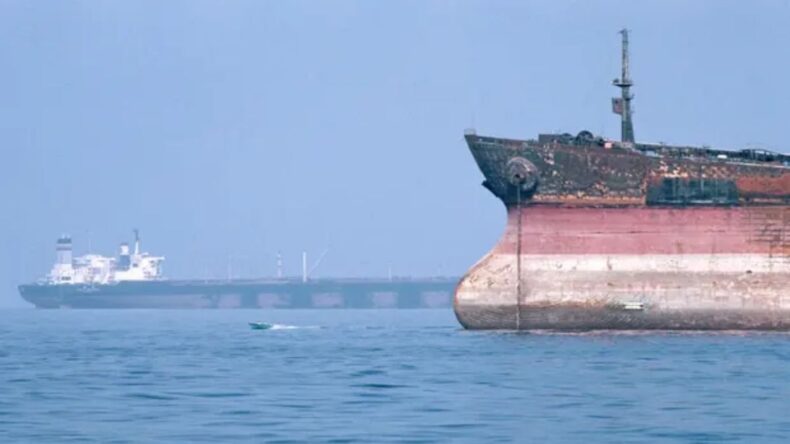An Iranian oil tanker bound for Lebanon was on board in the Red Sea on Friday ahead of the final voyage to Syria, which is expected to be the most extensive test in US sanctions against two regional enemies.
The tank is expected to arrive at the Syrian port Baniyas early next week, in defiance of US sanctions banning oil exports from Iran and imports to Syria, both of which were below US trade strict sanctions.
The imminent arrival is welcomed by a Lebanese military group that has transformed its political alliance, Hezbollah, to solve the energy crisis that has halted Lebanon and led to a power outage.
The trip’s final leg comes as a crucial test in the US decision to pursue deep-seated reparations against Iran, Washington hoping to return to the nuclear deal, and Syria, a decade-long war-torn country.
The US did not disclose what it intended to do when the hijacker crossed the Suez Canal and turned north toward the Levant.
Expected to be unveiled in Baniyas, petrol will be delivered by truck over the border to Lebanon.
Two other Iranian fuel and diesel suspects are believed to be still alive days later.
However, Washington has indicated that it may not intervene in the process of delivering much-needed fuel to Lebanon – an act that marks a critical moment in the struggle between the world’s superpowers and its two regional rivals and which may challenge the sanctions themselves.
US Senator Chris Murphy, a member of the Senate Foreign Relations Committee who visited Lebanon on Thursday, has indicated that a different step will be taken to import gas from Beirut from Egypt through Jordan and Syria.
An official of the US Department of State was not enthusiastic. “In essence, fuel from a sanctioned country, such as Iran, is not a viable solution to Lebanon’s energy crisis,” the spokesman said.
“Indeed, Lebanon does not need Iranian fuel. On the day that Hassan Nasrallah [secretary general of Hezbollah] announced the Iranian fuel import plan, two gas tanks were parked outside the Beirut port.
They had been at loggerheads for more than a week when Lebanese leaders argued among themselves about how much money they could exchange for imported goods.
Israel has said it strongly opposes Iranian fuel being imported to Lebanon, where its arch-enemy, Hezbollah, is holding a whip in the news of a war-torn country.
Iran and Israel have engaged in a tit-for-tat war on territorial waters, destroying ships connected to each country. Earlier this year, an arrow believed to have been fired from a drone hit an Iranian cargoes bridge off the Syrian coast.
Importing gas into Lebanon will require extensive rehabilitation of the disused Syrian and Lebanese pipeline parts and greater political cooperation, which has also been lacking in recent years.
It will also give Bashar al-Assad a chance to find a solution for Lebanon, a move for regional analysts and political officials fearing that it could unify the two countries’ challenges and strengthen the Syrian leader.
The collapse of the Lebanese power system has led to the country’s disintegration and is led by similar networks linked to political blocks that have pushed the country to the brink of extinction.
The collection of benzene and diesel has created significant shortages for bowsers and power outages that last up to 15 hours each day.
The lack of government – 13 months after the nitrate collection at the Beirut port burned, devastating surrounding areas – accelerated the collapse of these problems.













